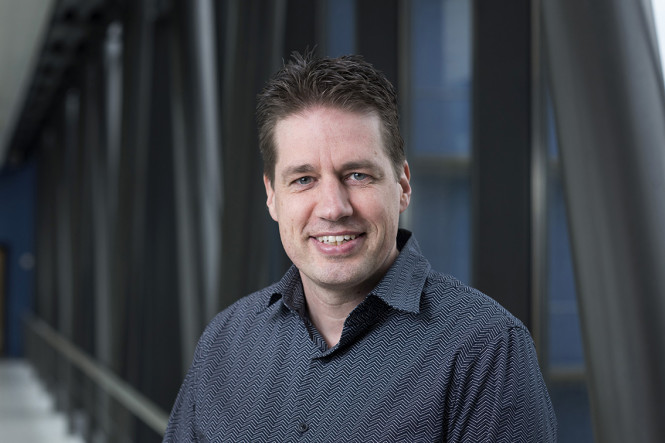In an international project named We All Are Multitudes: the Microchimerism, Human Health and Evolution, Dr. Michael Eikmans of the Department of Immunology at the LUMC and four partners from Graz, Bonn, Santa Barbara CA and Washington DC will conduct research on microchimerism. This is a process that occurs during pregnancy, whereby cells of the fetus cross the placenta into the mother’s body, or cells of the mother cross over to the fetus. After pregnancy, the ‘foreign’ cells may persist for many years in the host.
Clinical relevance
The project aims at elucidating the interaction between microchimeric cells and the immune system. In Leiden, the role of fetal microchimerism in women who are pregnant from a donor egg will be studied in collaboration with Dr. Marie-Louise van der Hoorn from the Department of Obstetrics and Gynaecology at the LUMC. Furthermore, maternal cells will be examined from the blood of the child’s umbilical cord upon birth. Such cells may be of clinical relevance in cases where the umbilical cord is used for stem cell transplantation in patients with red or white blood cell system defects.
A microchiome atlas
The consortium further aims to obtain insight into the evolutionary meaning of microchimerism. To this end, the presence of chimeric cells in different organs will be mapped (‘Microchiome Atlas’) using mammals, and how these cells disperse between different generations will be investigated. This will also enable researchers to study the possible role of microchimerism in rheumatoid arthritis.
Training young scientists
The consortium will organize at least two conferences, counting with the presence of experts in the field, and a visual exhibit for the public to generate an outreach event on the topic. Besides, a major part of the project will focus on training young scientists by means of exchange opportunities for students and postdocs between the institutes, amongst other activities.
News for news papers
Receiving an important grant for this research project from this prestigious institute has also been picked up by the regional newspapers, including the Leidsch Dagblad. Follow the link for the full news article.
